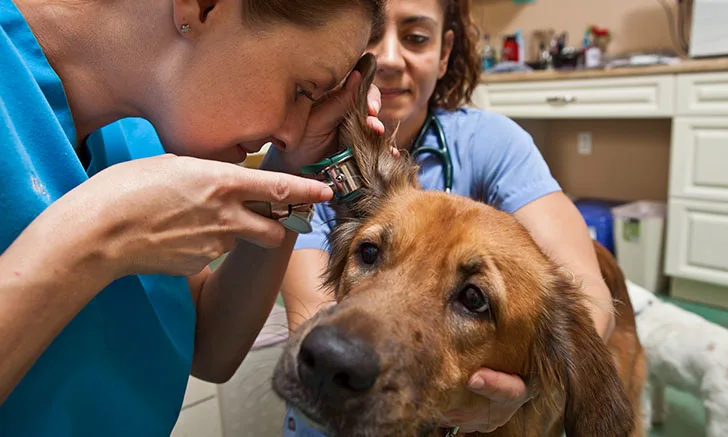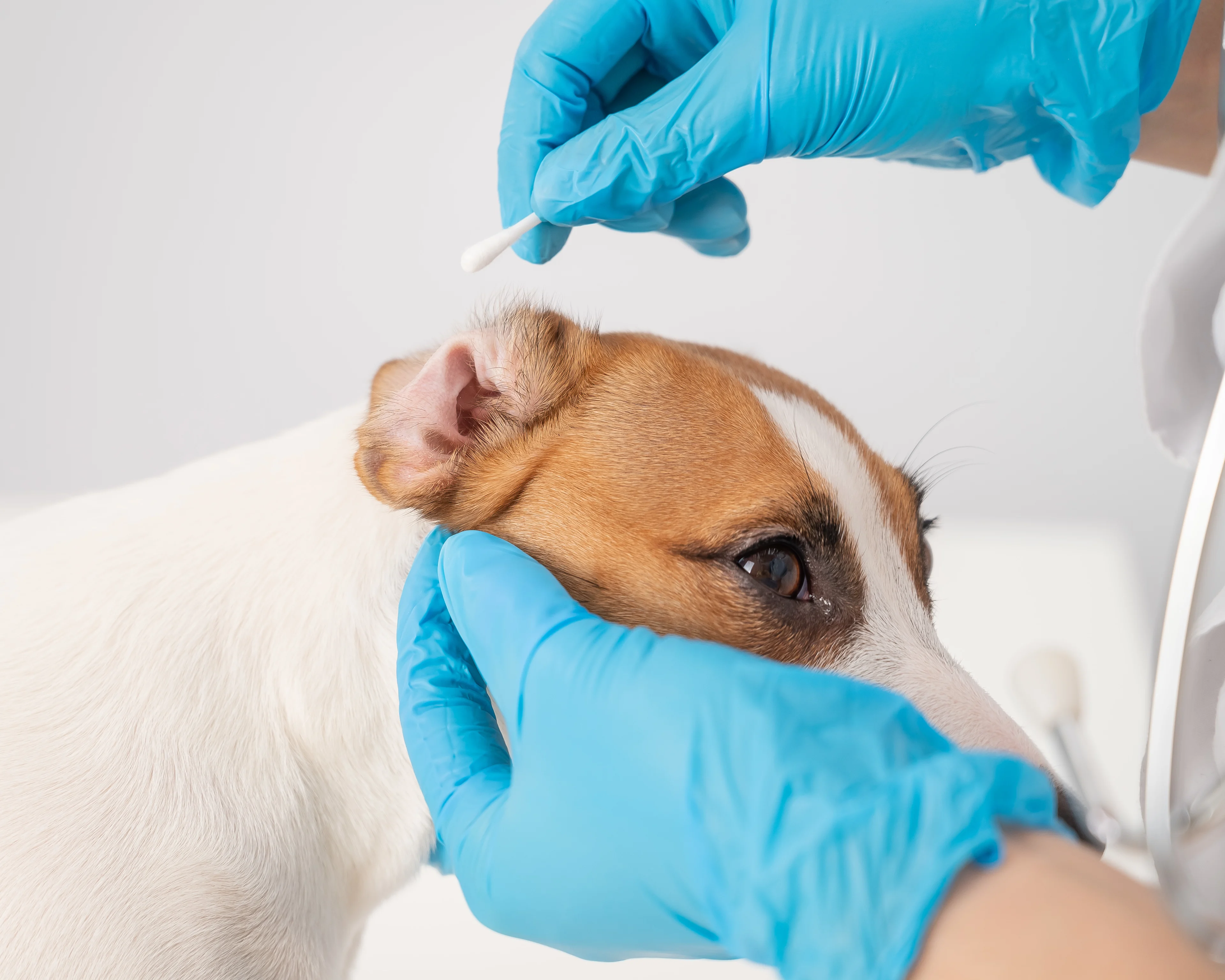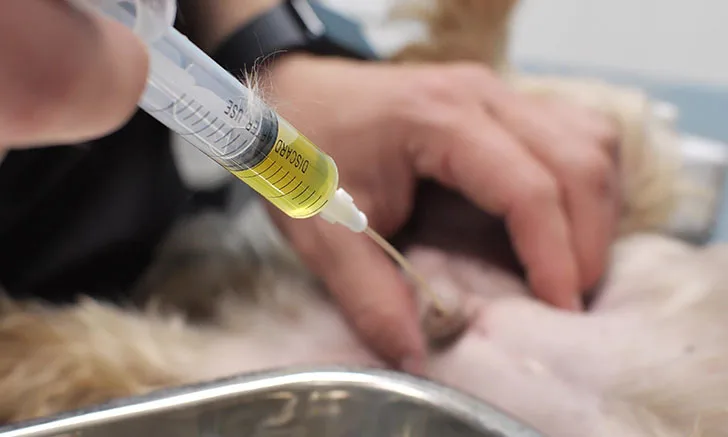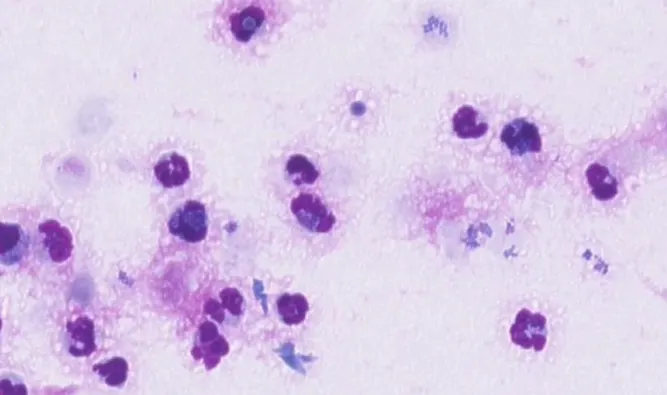DIAGNOSTICS LEARNING LIBRARY
We never know what challenges our patients may present us with next—whether it’s inflammatory bowel disease or pancreatitis. With this comprehensive library covering diagnostic topics from A to Z, refresh your skills and take away new insights into advances in diagnostics to positively impact your patients and your clinic. Anesthetic safety? Preventive health screening? Diabetes? This library has it all—and offers free CE.

ClinPath Corner
Even if you are not the one administering chemotherapy, managing cancer patients requires a keen eye for hematology abnormalities. In this case-based session, Dr. Sue Ettinger will guide you through the essentials of monitoring neutrophils, lymphocytes, and platelets in cancer patients, whether you’re performing a nadir CBC or assessing a patient that is not feeling well posttreatment. Attendees will learn when intervention is necessary versus when careful monitoring is sufficient and will also explore a new hematology technology that can help enhance patient care, giving you the confidence to interpret and act on your hematology results.
Interpreting inflammatory white blood cell patterns in patients can be challenging. Join Dr. Eric Morissette for tips on how to diagnose inflammation and gain a better understanding of common inflammatory WBC patterns using automated hematology counts and digital cytology.
In this presentation, learn how digital microscopy and deep learning artificial intelligence can alleviate challenges surrounding workflows and the time it takes to read samples. Plus, explore how this technology can provide practitioners with confidence in the accuracy of results for fecal flotations, blood smears, skin impression smears, ear and skin swab cytologic smears, and digital cytology.
In this webinar, discover the impact of point-of-care cytology and hematology techniques in the management of sick patients. The case-based presentation will also explore how to utilize cytology to make clinical decisions regarding surgical intervention and how to identify infectious agents, along with how a well-prepared blood smear can impact achieving a diagnosis.
This webinar will approach anemia from a case-based perspective. Explore signs of regenerative anemia with boarded internist Dr. Adam Gow and boarded clinical pathologist Dr. Corry Yeuroukis. Discover tips and tricks to optimize blood smears in anemic patients, then hit the rewind button and explore how a similar clinical presentation reflects nonregenerative anemia.
Do your cytology squash preps leave only free nuclei behind? In this webinar, explore tips and tricks for submitting better cytology samples, and learn from clinical pathologist Dr. Corry Yeuroukis on ways to improve blood smear techniques and how to optimize the cellular content on cytology submissions. Through real case examples, see the difference of how small sample prep changes can lead to diagnostic clarity.
In this engaging session, participants will gain a deeper understanding of how to interpret CBC results in the context of various clinical scenarios to help ensure accurate and informed decisions in patient care.
This session will focus on the diagnostic power of a comprehensive CBC. Using cased-based examples, Dr. Eric Morissette, veterinary services lead for Zoetis, will explore advances in artificial intelligence (AI) technology that can help make blood smears easier than ever and will share expert insights on how to leverage automated hematology analyzers with AI blood smear technology.
Delve into the revolutionary impact of AI-driven cytology in veterinary diagnostics. This course will guide you through the process of sample preparation and demonstrate how integrating AI insights with specialist expertise can overcome barriers and improve access to cytology. Drs. Mollyann Holland and Cory Penn will discuss the Vetscan Imagyst® system, focusing on the AI Masses indication, which helps identify cells suggestive of cancer quickly and accurately1,2 within a clinical setting and supports veterinarians in making timely and informed treatment decisions, improving care for patients that might otherwise face barriers to critical diagnostic services.
Look Deeper: Internal Medicine
Join Dr. David C. Twedt, DVM, DACVIM, to gain an understanding of the importance of abnormal liver enzymes, as well as the differences between primary and secondary liver disease, in this case-based course on liver disease in patients.
Acute pancreatitis in dogs is a complex medical condition that can be equally complex to diagnose and treat. In this webinar, Dr. David Twedt will cover the latest on the diagnosis and management of acute pancreatitis in dogs, including the diagnostic value of available testing options and the new therapeutic options for disease monitoring.
Knowing how to troubleshoot the highs and lows that come with managing diabetic patients can be the key to better patient outcomes. Join Dr. Richard Goldstein in this webinar as he shares strategies for improved diabetic management.
We’ve all had difficult cases of chronic gastrointestinal signs that have been difficult to diagnose, leaving the veterinary team unsure of next steps. Join Dr. Myles McKenna for this 1-hour, case-based webinar as he talks about the challenges of diagnosing canine inflammatory bowel disease (IBD) and offers 10 steps to troubleshooting difficult cases.
This webinar will highlight new ways to utilize technology to increase our ability to diagnose the icteric patient more efficiently with the help of specialists. The presentation will cover the production of bilirubin in the liver and define the 3 categories of icterus. Through a case-based discussion, appropriate diagnostics for the icteric patient will also be explored.
In this webinar, Dr. Dennis Chew will review what comprises a “complete” urinalysis. The advantages and disadvantages of performing a urinalysis manually in house, in house with automated methods, and sending out to a reference laboratory will be detailed. The presentation will also emphasize findings revealed during urine sediment microscopy and review the basic elements in urine that need to be identified.
Blood work alone may offer an incomplete picture of a patient's health. This case-based presentation will emphasize the crucial role of urinalysis in diagnosing and managing health conditions in dogs and cats. Join Dr. Eric Morissette as he highlights real-life cases when urinalysis was added and revealed the full clinical picture, helping to avoid misdiagnoses that could have been made with blood work alone.
This presentation will look at the importance of fecal examinations to detect intestinal parasites, prevalence of intestinal parasites in the United States, recommended testing methods for these parasites, and how advances in deep learning AI image recognition technology can help improve diagnostic testing for our patients.
Trouble with Skin
Should skin cytology be performed for every itchy pet? This webinar will discuss the role of diagnostic testing in dermatology, including an introduction to the latest in cytologic technology.
Horses, Horses, Horses
An elevated concentration of serum amyloid A (SAA) is a reliable biomarker for infection-related inflammation. In this webinar, learn how Stablelab® can help distinguish infectious from non-infectious inflammation and enhance patient care.
Take a look at the new equine AI fecal (coming in 2023) and cytology indications on the VETSCAN IMAGYST and how the instrument allows for fast detection and diagnosis in equine cases.
Additional Webinars
Join us for a conversation on how new innovations in diagnostic testing can improve clinic workflows, accuracy, and speed of receiving results. In this case-based session, Dr. Sue Ettinger, Dr. Richard Goldstein, and Dr. Jane Sykes will discuss how technology is improving veterinary medicine.
Clinics should ideally focus on generating value that equals or exceeds pricing, which can be accomplished with an understanding of client-driven costs and the generation of value. In this webinar, explore different pricing strategies and gain an understanding of all the costs that need to be taken into account when constructing a plan to set prices in the clinic.
Have you ever had an ADR patient derail your day? This webinar will explore expert tips and tricks for streamlining sick pet examinations and offer strategies for utilizing the entire veterinary team to maximize efficiency.
Additional Resources
New Resources
The routine complete urinalysis is a relatively quick and inexpensive test that can be readily performed in most veterinary clinics. Explore this comprehensive guide to the urinalysis and unlock valuable insights, including when to perform a complete urinalysis, sample collection and processing methods, automated sediment analysis, and more.
This guide is designed to give you everything you need to get the most out of the Vetscan Imagyst AI Urine Sediment application. Download the guide for insights into the complete urinalysis, how to use the Vetscan Imagyst for AI urine sediment analysis, and more.
Dermatology cases, including skin and ear disease, make up a significant portion of the small animal veterinarian’s daily caseload, and cytology can play a critical role in diagnosis. Explore the building blocks of dermatology diagnostics and the importance of cytology in this article.
Navigating the diagnosis of feline heartworm disease is anything but straightforward. Eliminate the confusion by using this comprehensive algorithm to aid in the assessment of your feline patients.
With a differential list ranging from acute abdominal bleeding to chronic kidney disease, anemia can stem from a wide range of possible causes. Use this algorithm to lead to a definitive diagnosis, leaving no stone unturned.
Does the proteinuric patient leave your head swirling? Utilize these algorithms to assess if CKD is at play and navigate the path toward a proactive approach in the monitoring and management of proteinuria.
Heartworm antigen testing can reveal a positive result 6 to 7 months postinfection. What implications does that have for confirming an infection or safely initiating prevention? Use this simple guide to ensure every pup gets the necessary care.
DIA-00622






























